"And it was fashionable?!" Strange trends that used to be at the height of fashion ...
Categories: Fashion | History | People | Photo project | Society | World
By Vika https://pictolic.com/article/and-it-was-fashionable-strange-trends-that-used-to-be-at-the-height-of-fashion-.htmlToday, modern fashion shows reflect the most daring ideas of world designers and fashion designers. There was a time when we lamented more than once at the sight of huge men's suits and jackets on thin girls, but one way or another, this trend entered without demand and still continues to be at the peak of popularity. Thus, what immediately seems wild and unimaginable, over time, tightly rubbed into fashion and became the "hit" of the season, year, and maybe even a century! In this collection, we will look at the most unusual at first glance, the trends that fashionistas from the past millennium befitted ...
9 PHOTOS
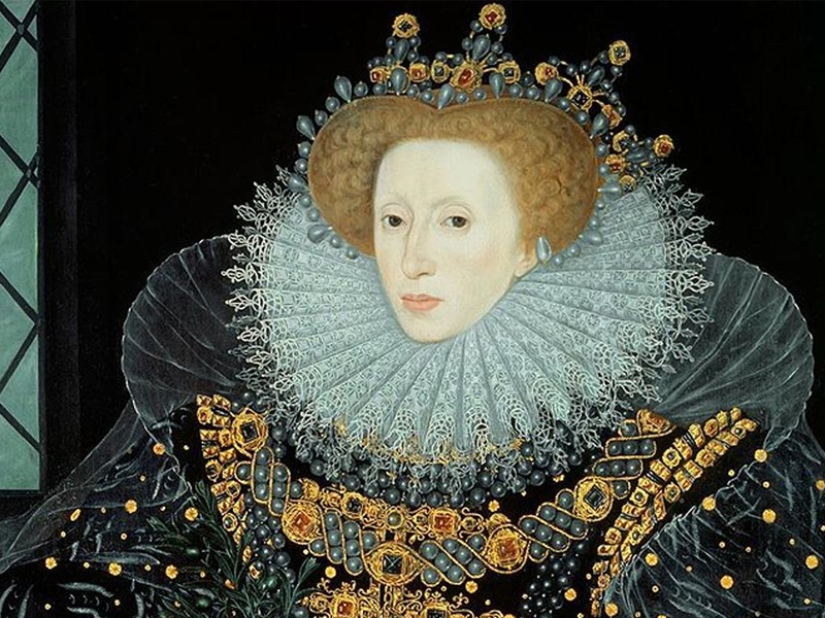
1. Voluminous collars
Puffy layered collars came into fashion during the reign of Elizabeth I. Among the people, this fashion trend was also called the “head on a plate”. Such voluminous collars emphasized status and were a fashionable accessory of the elite society of those times. It must be said that wearing such collars was extremely inconvenient, especially considering that their size increased every year. For the same reason, in addition to the main collar, a stiff standing collar was worn, which kept the shape. But to maintain neatness and cleanliness, starch was used.
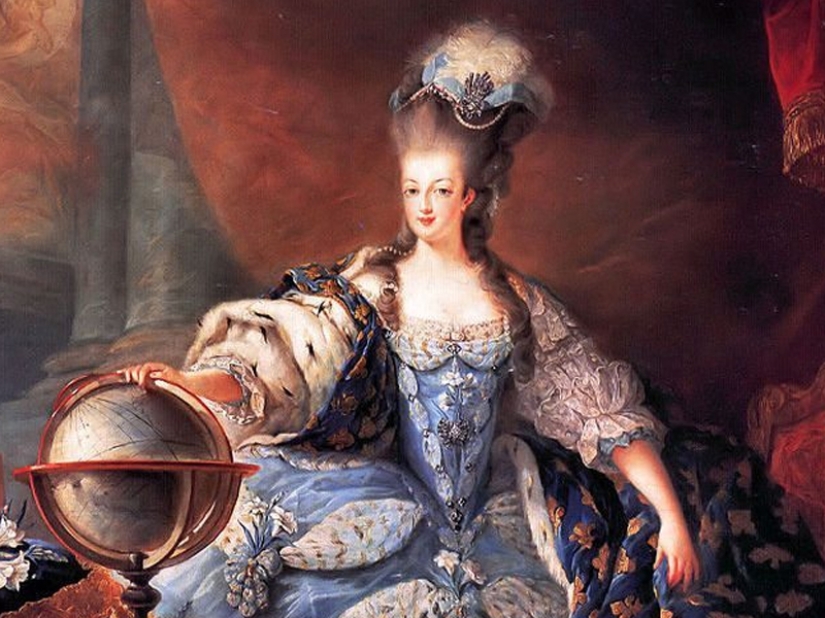
2. High hairstyles of the 18th century
Starting from the second half of the 18th century, women's hairstyles begin to "grow" upwards and acquire incredibly complex and massive forms. Building such a hairstyle on the head cost incredible effort and took a lot of time, so frequent washing of the head was out of the question. For this reason, various insects loved to start up in the hair of women and girls. The ladies eliminated the constant itching on the scalp with the help of special comb sticks, which did not harm the hairstyle.
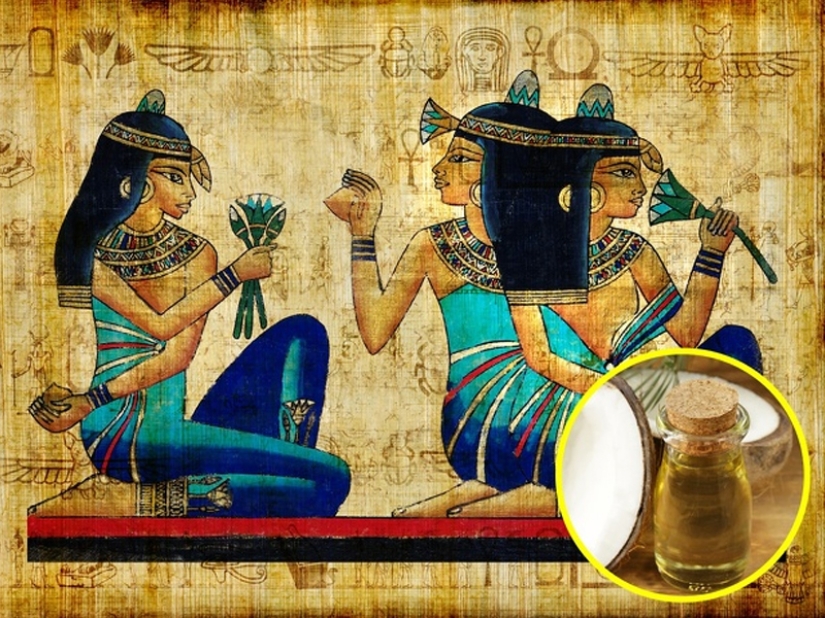
3. Egyptian cones
In ancient Egypt, men and women wore wigs that were attached to special cones. Such conical bases were made from wax with an admixture of aromatic oils. During the intense heat, these wax cones melted and dripped onto the hair and body, forming a kind of film that trapped sweat. At the same time, the Egyptians shaved their own hair to zero for hygiene purposes.
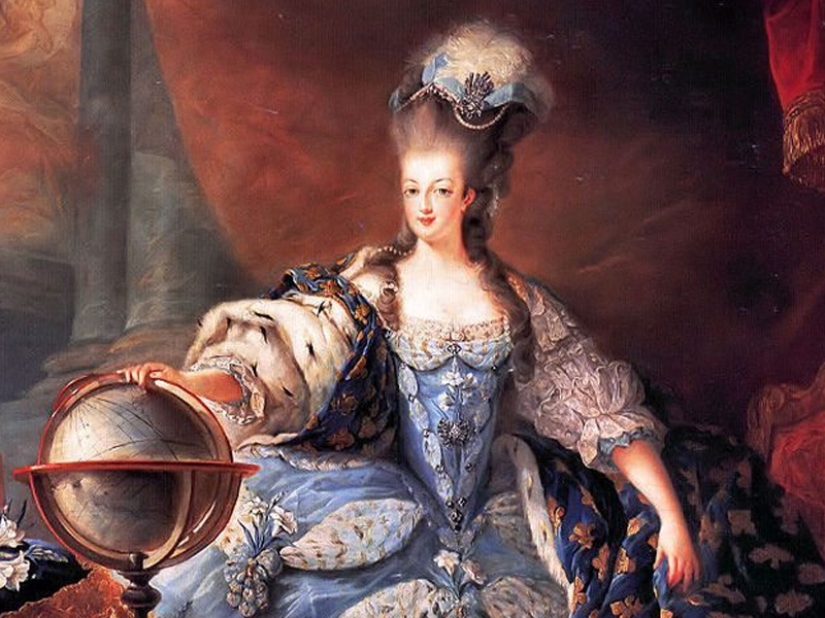
4. Wigs even for men
Long hair has always been considered a symbol of beauty, youth, and health. They became especially relevant in the 16th-17th centuries, just when syphilis was rampant in Europe. Bald people were disgusted by the people and they were immediately suspected of illness, so they were forced to wear wigs to disguise their scanty hairline, even if the topic of health was not at all the real reason. This accessory became super popular under Louis XIV, who, having started to go bald in his early youth, constantly wore a wig. All the courtiers tried to imitate him, and wearing a wig for 3 centuries in a row became a symbol of well-being and prosperity, until natural strands, albeit not the most luxurious hair, came back into fashion ...
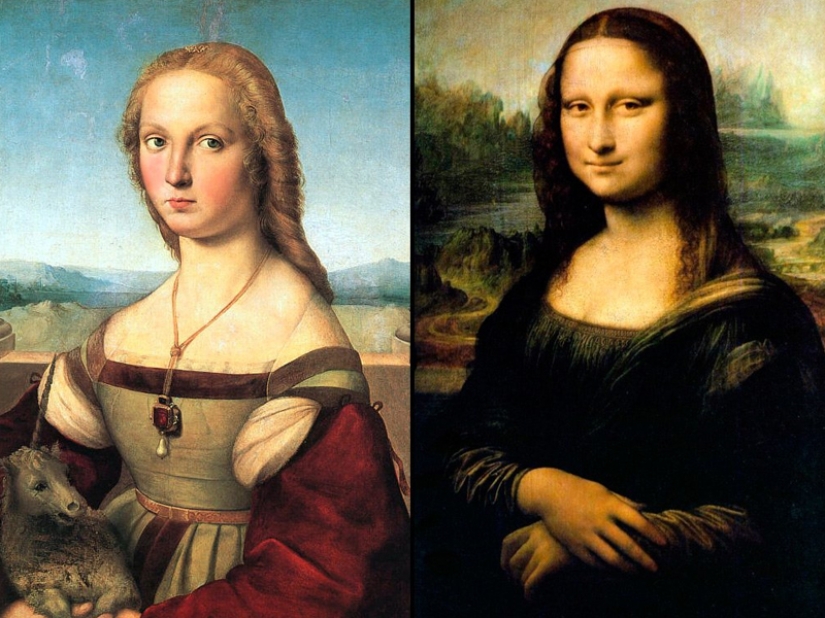
5. Fashion in the Renaissance
Renaissance women would seem to us today faceless and shabby kept women, because they shaved their hair on their foreheads and temples, and bleached or plucked their eyelashes and eyebrows. What did they do on purpose, in order to reveal the appearance and not distract attention from the true beauty of the skin of the face and neck with extra hair? One of the best examples of the ideal female image of that time was the well-known painting by Leonardo da Vinci - Mona Lisa.
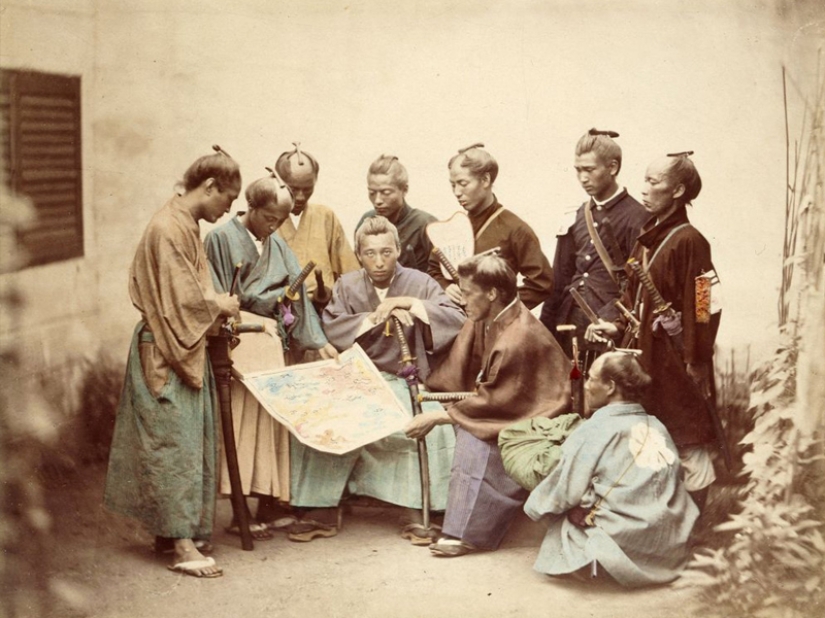
6. Samurai hairstyles
In those days in Japan, many things could be determined by the appearance of a samurai, including what class he belongs to. In ancient Japan, there was a belief that all the life force of a person is contained in his hair, so neither men nor women cut their hair. Samurai shaved the hair on the forehead and back of the neck, and the rest was tightly twisted into a ponytail or braided into a pigtail. Such a hairstyle could easily be hidden under a helmet before the battle, and various accessories made of wood or metal were often used in such a hairstyle, which, in case of emergency, became an additional weapon of the samurai.
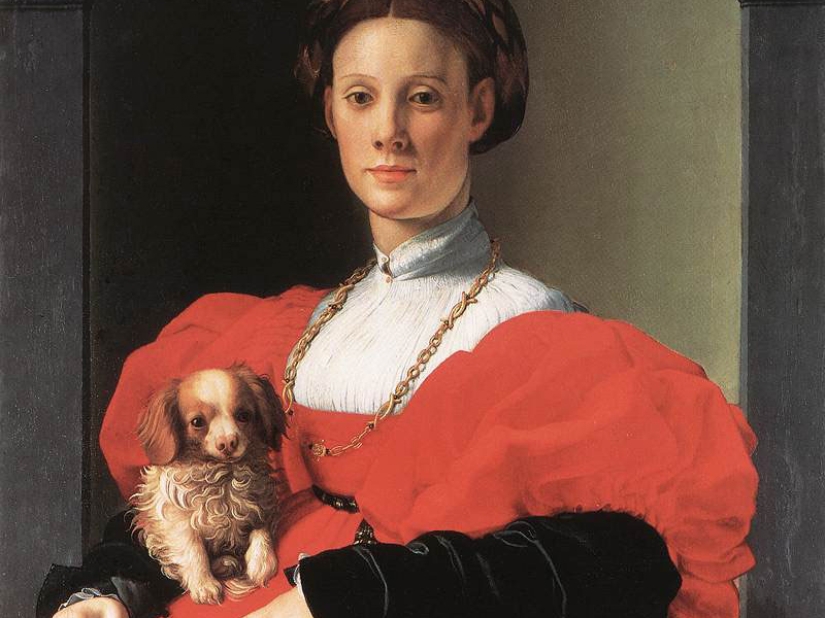
7. Pocket dogs
If you think that the fashion to carry pocket dogs around with you has come quite recently, then you are greatly mistaken. In the Middle Ages, ladies also willingly dragged little ones along with them, although the reason was completely different. The fact is that dogs were the best bait for fleas, lice, and other parasites. The body temperature of animals is higher than that of humans, so all kinds of cats more often chose their wool as their “home”. Also, some young ladies used their pocket pets as towels or napkins and often wiped their hands on them after a meal.
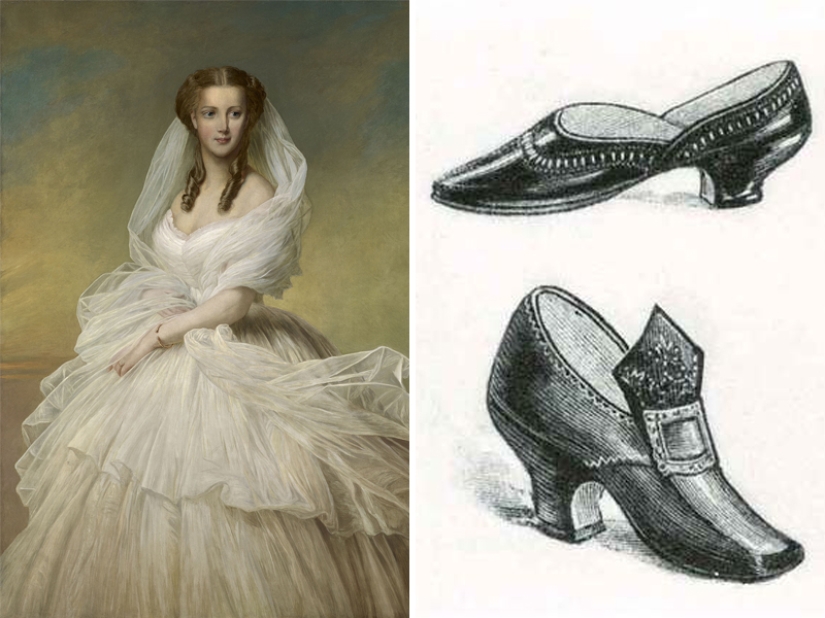
8. Shoes with different heel heights
In ancient times, in the pursuit of fashion, one could often see common sense suffer. This is what happened with this strange trend. The fact is that the then Princess Alexandra of Denmark, the wife of Edward VII, who was the king of Great Britain in the first half of the 20th century, became a victim of rheumatoid arthritis, because of which she constantly limped on one leg. However, the princess was so popular and loved by the people that her lameness became a kind of trend of those times. Many girls, trying to imitate their beloved princess, imitated lameness by wearing shoes with different heights of heels. Subsequently, similar shoes under the name "Alexandra's Lameness" could be purchased in stores.
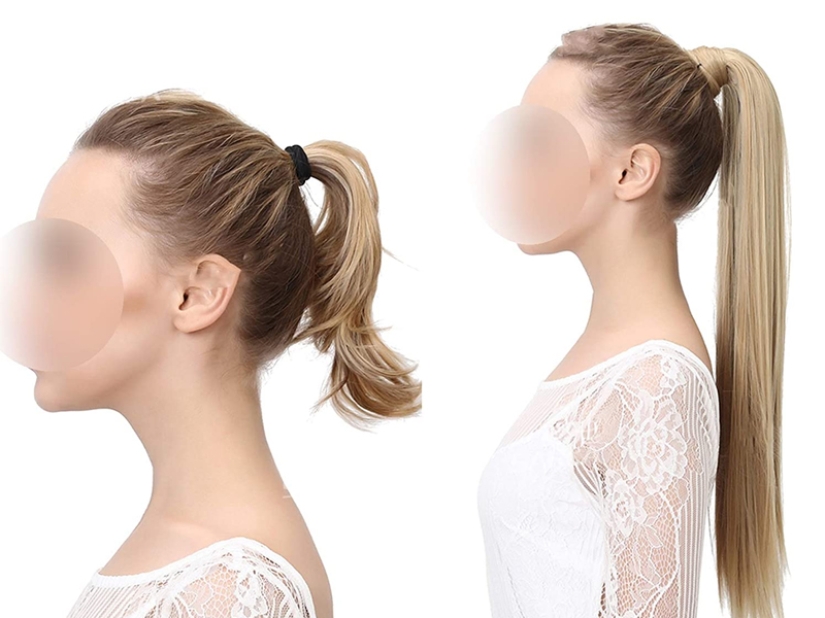
9. Chignons or false tails
Chignons were known in ancient Greece, where women combed their hair at the back of their heads and fixed it with gold or ivory hairpins. This was done in order to visually increase the density of the hair and be able to create different hairstyles. Hairpieces peaked in popularity in the early 14th-mid 18th century, but even today, many women still use this trick to create complex layered hairstyles for events or performances.
Keywords: Fashion | Modern fashion | Fashion shows | Designers | History | Countries | Popularity | Fashionistas | Fashion trends
Post News ArticleRecent articles

It's high time to admit that this whole hipster idea has gone too far. The concept has become so popular that even restaurants have ...

There is a perception that people only use 10% of their brain potential. But the heroes of our review, apparently, found a way to ...
Related articles

Many are tormented by the question — why do some grow long nails on his pinky. If you ask the owners of such "decorations", we ...

In the 90s, The Viper Room nightclub was a favorite place of entertainment for many stars. In 1993, it was created by Johnny Depp ...

For centuries, hats have played an important role in men's wardrobe, performing utilitarian, decorative and even symbolic ...

New Year's is a time to surprise and delight loved ones not only with gifts but also with a unique presentation of the holiday ...